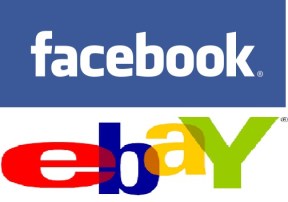
Article by techcrunch
“We’re at an inflection point”, eBay CEO John Donahoe said from the stage at Innovate, eBay’s brand new developer conference that launched today in San Francisco. “We’ll see more change in how consumers shop and pay in the next three years than we’ve seen in the last 15 years”.
Donahoe’s prediction for the future came as context for giving a more complete introduction today to X.commerce, the platform formed by eBay and its nest eggs PayPal, Magento and GSI — designed to create a robust, full-service and “open” eCommerce solution. The eCommerce solution “to rule them all”, one might say.
But the real kicker is that, as Leena wrote earlier today, what X.commerce really symbolizes is the first instance of eBay creating a business that truly caters to developers. In the past, eBay developers have been divided into the eBay marketplace, PayPal, etc., but now developers have all those technologies in one place, allowing them to create “new shopping and eCommerce experiences based on these interconnected suite of tools”.
One of the more anticipated announcements to come out of Innovate was a partnership between the world’s largest social network and eBay, which will see the latter integrating Facebook’s Open Graph (the tree of connections Facebookers create by sharing and interacting with friends and content on the social network) into its Magento and GSI global commerce platforms.
What does this mean? The partnership will basically give third party developers a bigger voice in the development of social commerce, allowing them to build new social shopping experiences for consumers and retailers, share their ideas, and create personalized apps for buying, selling, and sharing that have Facebook’s social features baked right into them.
While building Facebook’s features into eCommerce offerings may allow them to make shopping more personalized and display friends’ thoughts about products right in their eShops, the truth is that social commerce hasn’t exactly taken off over the last year. Merchants already have the opportunity to set up storefronts on Facebook to sell directly to their customers while they’re networking or surfing a brand’s fan page, but so far sales on the platform haven’t impressed.
It seems that consumers aren’t particularly jazzed about doing their shopping on Facebook — part of which may be due to the novelty of Facebook’s eCommerce or it could simply be a reluctance to embrace new commerce functionality on what is really a platform designed to share pictures and stalk former romances. It also may have something to do with the fact that many consumers are worried that their credit card and personal information is being scooped up by Facebook in the transaction process. Either buyers are redirected to a brand’s own online store, or they buy on Facebook and often have to accept an app request to make a purchase. That app request can give away a bunch of information on the user and it’s really something many consumers are still loathe to do.
Indeed, it’s a result of this that, as VP and General Manager of X.commerce Matthew Mengerink said today, online shopping remains “a very individualistic and lonely experience”. Which is a shame considering the fact that Facebook’s Director of Platform and Mobile Marketing Katie Mitic told the Innovate crowd that shopping is inherently a social activity and that the world is really just beginning to get a taste of “what’s possible with social commerce”.
Of course, to achieve what’s possible with social commerce eBay and Facebook need the developer community to get excited and want to be on board. Yet, as Reuters pointed out, some analysts and eCommerce experts were hoping for a deeper and perhaps more full-featured partnership between the two companies. And Mitic’s announcement was met with little to no applause from the 3,000+ developers and techies on hand.
This could of course be that they were tired, or that the recent changes to Facebook’s platform that took users beyond the “like” button to allowing them to share what they’ve “read” or want to “taste” just don’t sound that enthralling when applied to social commerce. With eBay’s new Facebook integration, developers will now be able to build social commerce apps that allow users to share what products they “buy”, “want”, “own”, or “recommend”. But is this enough to really change the face of social commerce?
Mengerink said that, in the market today, too many shopping apps target the point of sale, but that the real-life process of browsing, discussing what products are appealing or not, and trying different things on, for example, is inherently social, but it doesn’t always involve buying.
“What we’re encouraging developers to think about is to try out the more ‘pre-shopping’ social experience”, he said. Meaning that the process of joining friends at an online store, browsing, sharing, and chattering via enhanced social features is a way to encourage brand recognition, organic word-of-mouth familiarity with products — and is integral to making the online shopping experience more resemblant of offline shopping. And to grow online sales. The question is, of course, whether or not this is truly possible just with “want” and “own” buttons, and just how much these new pre-shopping features can boost a brand’s bottom line.
The virtual shopping experience is a long ways off from one that mimics its offline counterpart, and I’ve yet to be convinced that just because one of my grade school friends interacted with a product on Facebook, which then popped up in my news stream, that I’m more likely to interact with that product and buy it just because of some loose social connection manifesting while I’m in the process of turning off more Facebook sharing features. Yes, it adds to a brand’s network, and if I’m browsing friends’ profiles and see a product I want to learn about before buying, this is a great conversation starter.
What do you think? Is this a win for developers, consumers, eBay, or Facebook (or all of the above)?












